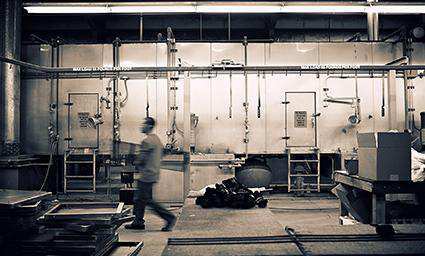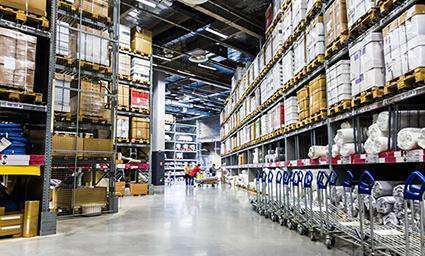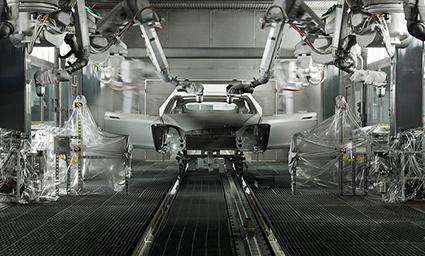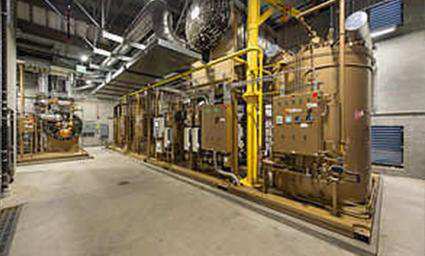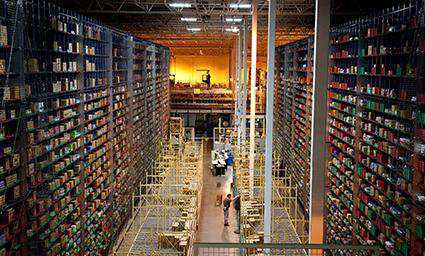
Pests diet consists of organic matter, much of which does not comprise of food for humans (wood, fabric, etc.). Pests also often damage inorganic materials that they do not consume (plastic, soft metals, etc). Therefore, their presence and even worse their establishment, in industrial environments as well as in commercial stores, in addition to the risks posed to human health might result in the damage of merchandise. Especially when it comes to stores, any trace of their existence may result in a damaged reputation, as a result of exposure of these areas to the public.
With Defon's Integrated Pest Management (IPM) system, specially tailored services are offered to meet the specific needs of this sector’s businesses.

Pests diet consists of organic matter, much of which does not comprise of food for humans (e.g. wood, fabric, etc.). Pests also often damage inorganic materials that they do not consume (e.g. plastic, soft metals, etc). Therefore, their presence and even worse their establishment, in industrial environments as well as in commercial stores, in addition to the risks posed to human health might result in the damage of merchandise. Especially when it comes to stores, any trace of their existence may result in a damaged reputation, as a result of exposure of these areas to the public.
Defon, based on its years of experience, adapts to the individual needs of each one of these businesses and treats them accordingly.
Reasons to control pest infestations
Some of the most important reasons to control pest infestations, in the entirety of warehouses, include:
- Protecting the health of any person in the premises that could be at risk in a pest-infested environment, by:
- preventing direct transmission of diseases from pests to humans, e.g.
- malaria caused by protozoa of the genus Plasmodium, transmitted via mosquito bites.
- preventing indirect transmission of diseases from pests to humans caused through contamination of water and/ or food and/ or surfaces with pathogens, e.g.
- Weil’s disease (leptospirosis) caused by bacteria of the genus Leptospira, transmitted via rodent urine.
- Preventing a loss of merchandise due to damage and/or destruction of them and/or their packaging caused by pests. This category includes the recall cases of infested products, often the entire batch.
- Preventing structural and property damage, e.g.
- rodents may gnaw at wiring causing short circuits and even fire.
- Protecting any person in the premises from the distress caused by pest presence.
- Preventing loss of customers and damage to reputation that occurs when the news of pest presence is communicated, resulting in a further decline of clientele.
Pests relevant to this sector
Pests that are frequently detected and cause major problems in this sector are listed below. For additional information refer to section: Pest library.
Rodents (mice, rats)
Cockroaches
Stored product insects
Dust Mites
Termites and other Wood-boring insects
Ants
Birds
Flies
Mosquitoes
Midges
The solution offered by Defon
Defon, based on years of experience, addresses the above issues by implementing its Integrated Pest Management (IPM) system which is adapted to the specifics of the entirety of warehouses. The following is a general description of this system’s methodology, detailing some characteristic examples.
-
The development and implementation of an Action plan.
-
Service report submitted within the Report folder.
For ongoing protection and detection of infestations from the start, it is proper for pest control contracts to include frequent supervision rather than solely treatments.
The most significant problems are identified on the Site survey, during which Defon investigates:
- Entry points for pests such as:
- open doors and windows, e.g.
- special attention is given in loading areas.
- inadequacies to structure and proofing of premises, e.g.
- faulty proofing around water and air conditioning pipes,
- door sills,
- damaged walls by forklifts that additionally create hiding and breeding grounds (this concerns factories and wholesale).
- Hygiene standards, such as cleaning methods and schedules.
- Food preparation, serving and storage areas designated for staff such as kitchens, canteens, etc. For additional information on this topic refer to Restaurant, Catering and Food industry sector.
- Product sale or display areas.
- Public areas such as reception areas, staircases and toilets.
- Server and control rooms.
- Areas that offer shelter such as inadequate storage. For additional information on this topic refer to Warehousing sector.
- Other areas such as offices, engine rooms, etc.
- Difficult areas to access, such as false ceilings and floors, where pests could remain undetected until it’s too late.
- Surrounding areas, such as garbage disposal, gardens, garages, etc.
In certain circumstances, where necessary and possible, specialized Fumigation services can be carried out, amongst others. These treatments are usually offered for commodities but also for entire premises, if necessary.
As part of Defon’s Integrated Pest Management (IPM) system, support can be offered to client’s staff throughConsultation Services with ed with education and training regarding prevention of pest problems and best hygiene practices.
Defon ensures the protection from pests, safeguarding the integrity of merchandise, good business reputation and smooth operation of its client’s wholesale, retail stores and factories, whilst keeping health, safety and the environment in mind.
